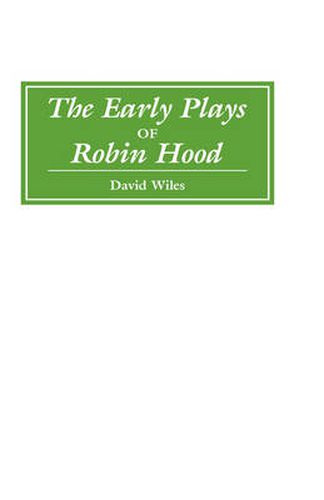Readings Newsletter
Become a Readings Member to make your shopping experience even easier.
Sign in or sign up for free!
You’re not far away from qualifying for FREE standard shipping within Australia
You’ve qualified for FREE standard shipping within Australia
The cart is loading…






Robin Hood was the subject of many fifteenth and sixteenth century folk-plays, of which only traces remain. As a result, the ballads, many of which have survived, have usually been regarded as the main-spring of traditions about the famous outlaw. David Wiles however, argues that the dramatic tradition was equally, if not more, important. He sees the plays, associated with Whitsun revels, died out much earlier, and so must be reconstructed from fragmentaryscripts and the tantalising glimpses afforded by sources such as churchwardens’ accounts. Robin Hood emerges as an emblem both of the Spring and of rebellion; as a Summer king, the player of Robin Hood flouted and parodied regular authority. With such a background, the plays ceased to be an acceptable part of parish life after the Reformation, and the games were suppressed, while the myth of Robin Hood was manipulated and made respectable.
$9.00 standard shipping within Australia
FREE standard shipping within Australia for orders over $100.00
Express & International shipping calculated at checkout
Robin Hood was the subject of many fifteenth and sixteenth century folk-plays, of which only traces remain. As a result, the ballads, many of which have survived, have usually been regarded as the main-spring of traditions about the famous outlaw. David Wiles however, argues that the dramatic tradition was equally, if not more, important. He sees the plays, associated with Whitsun revels, died out much earlier, and so must be reconstructed from fragmentaryscripts and the tantalising glimpses afforded by sources such as churchwardens’ accounts. Robin Hood emerges as an emblem both of the Spring and of rebellion; as a Summer king, the player of Robin Hood flouted and parodied regular authority. With such a background, the plays ceased to be an acceptable part of parish life after the Reformation, and the games were suppressed, while the myth of Robin Hood was manipulated and made respectable.